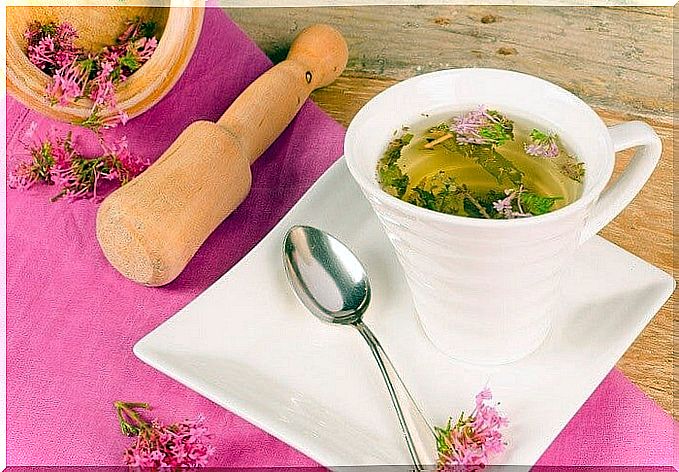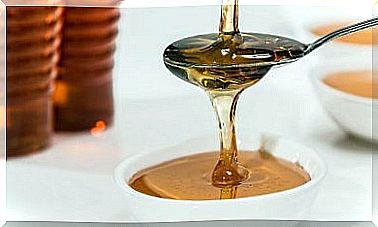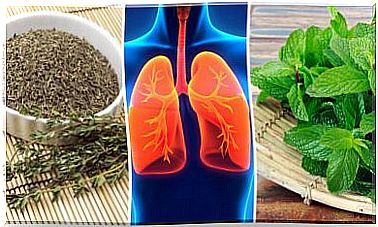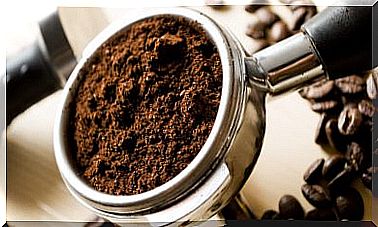9 Natural Muscle Relaxants
The most common muscle aches are located in the neck, shoulders and back. The following natural remedies can help you get relief.
Nowadays, sedentary lifestyle is very common. Added to this, stress and daily obligations promote an unhealthy lifestyle capable of generating various discomforts. Therefore, we present you which are the 9 natural muscle relaxants that can help you combat these day-to-day discomforts.
The purpose of natural medicine is to avoid using drugs excessively and constantly. And while remedies can help supplement physician-prescribed treatment or help alleviate minor discomfort, they should not be used as a substitute.
Causes of muscle pain
Muscle aches can be caused by poor posture or staying in the same posture for too long. They can also be loaded with a heavy object in the wrong way. Hence the importance of good postural hygiene.
On the other hand, muscle aches can be a symptom of a psychosomatic illness, such as stress and anxiety. Obviously, an injury (such as a sprain or a contracture) can also be a cause of muscle pain.

Methods to combat muscle pain
- Physiotherapy.
- Acupuncture.
- Relaxing massages.
- Compresses (hot or cold).
Fortunately, you can use both these methods and natural remedies to treat muscle pain. Together, all the methods can help to achieve relief. The key is to be consistent and take care of all lifestyle habits, this includes rest and food.
Keep in mind that a balanced diet is necessary to maintain good health, including the muscles. To do this, it is recommended to consume, daily: 1500 mg of calcium, 1500 mg of magnesium, 99 mg of potassium and 3000 mg of vitamin C.
Natural muscle relaxants
1. Rosemary
Rosemary is a plant widely used both in gastronomy and in perfumery and medicine. Its aroma is very pleasant and has properties capable of relieving respiratory, digestive and muscular ailments.
With regard to the treatment of muscle aches, this plant acts as an antispasmodic, thereby helping to relieve the area considerably.
Its essential oil can be used to promote relaxation of muscles and joints. It is also ideal for relieving cramps caused by menstruation and other spasms. A soaking bath is also a good way to take advantage of the properties of this plant.
2. Valerian
Since valerian has a calming, sedative and anti-inflammatory effect, it can be used to relieve muscle aches in addition to controlling anxiety, certain sleep disorders (such as insomnia), among other discomforts.
How does it work exactly? Well, the active principles of valerian (valepotriates, amino acids and flavonoids) increase the brain concentration of GABA acid (gamma aminoburitic acid), a substance that relaxes both the central and vegetative nervous systems.
In general, the properties of valerian are usually taken advantage of by consuming its infusion, but moist compresses and tonics can also be applied directly to the affected area.

3. Chamomile
Chamomile is one of the most widely used plants in the world as an infusion. Its antispasmodic, anti-inflammatory and diuretic effects are well known, especially when treating digestive discomfort, menstruation and nerves.
However, you can also use its infusion or its different atopic products to relieve muscle pain. For example, a cream that contains chamomile in high concentrations can help reduce tension in the area.
4. Catnip
Catnip is a plant in the mint family that is used as a natural sedative and, at the same time, as a muscle relaxant. It also helps reduce joint swelling, relieve tension headaches, heal soft tissue injuries, among other properties.
5. Cayenne pepper
It is widely used in the home for cooking recipes and it has been proven to be more than effective in quickly and effectively relieving and treating pain caused by muscle cramps.
6. Radish
Given that radish has a certain diuretic effect, its consumption is beneficial in reducing inflammation that causes muscle aches and cramps.
7. Serpol
Serpol is a plant similar to thyme, whose properties help to naturally relax the muscles. It can be used as an infusion or its essential oil.
8. Passionflower
The petals of this plant contain phytosterols and flavonoids, both with antioxidant effects. In turn, it has alkaloids and other compounds that provide a relaxing and analgesic effect. It is used to treat cases of insomnia, muscle contraction, stress, anxiety, nervousness, and so on.
9. Lavender
Like chamomile and valerian, lavender is a plant with a powerful sedative effect that helps to relax muscle tension. It is also rich in phytochemicals and antioxidants.
The great advantage of natural remedies is that, in general, they do not usually cause side effects. However, for them to have the desired effect it is necessary to be constant in their application and, above all, patients, since their action is not usually immediate.









